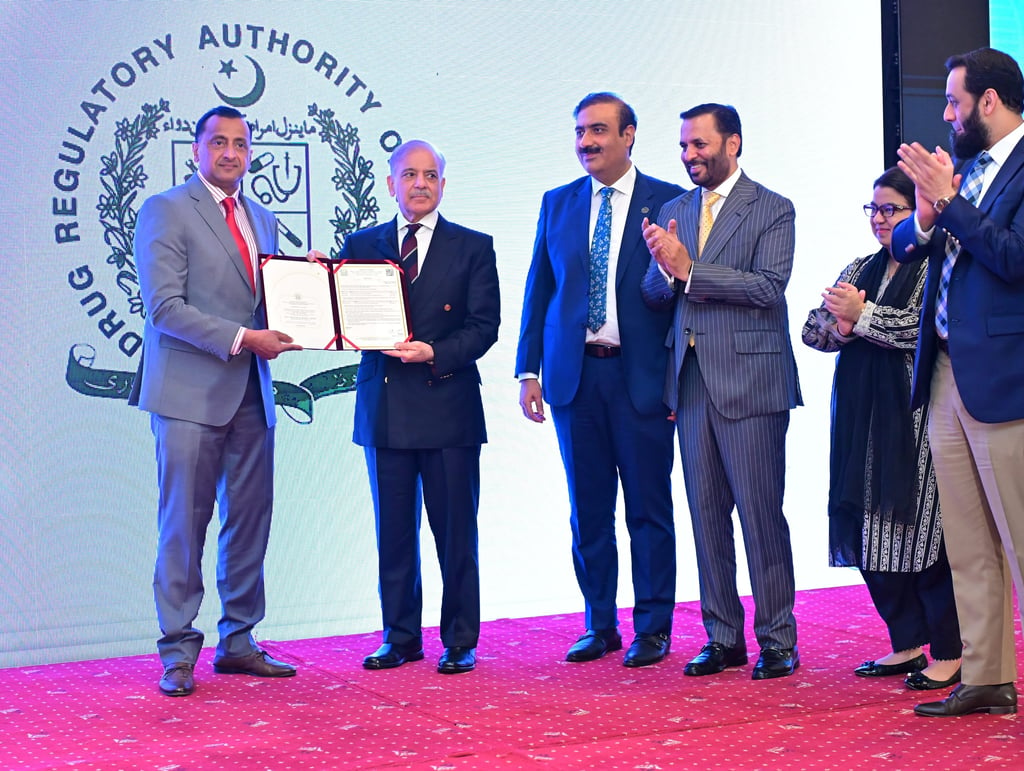PM Launches Digital Licensing System for Medical Devices Mustafa Kamal Leads Health Sector Reform
Prime Minister Shahbaz Sharif, alongside Federal Health Minister Mustafa Kamal, inaugurates Pakistan’s first digital licensing and registration system for medical devices ushering in a new era of transparency and reform in the health sector.
Web Desk Digital MQM
7/28/20252 min read


Pakistan Introduces Digital Medical Device Licensing: A Joint Vision of PM Shahbaz Sharif and Minister Mustafa Kamal
On July 21st, Prime Minister Muhammad Shahbaz Sharif officially launched Pakistan’s first digital licensing and registration system for medical devices, marking a historic milestone for healthcare reform in the country. The ceremony, held in Islamabad, was attended by Federal Health Minister Syed Mustafa Kamal, the Secretary of Health, the CEO of the Drug Regulatory Authority of Pakistan (DRAP), and other senior officials.
Speaking at the launch, Prime Minister Shahbaz Sharif said:
“Bringing a revolution in the healthcare sector is challenging—but not impossible. We must work collectively to change the destiny of this nation.”
He praised the Ministry of National Health Services for spearheading digitization efforts, noting that this system was initiated during the previous PDM government. He added that the new CEO of DRAP was appointed purely on merit, bringing new energy and direction to the organization.
Reform Through Digitization The Vision of Mustafa Kamal
Federal Health Minister Syed Mustafa Kamal, addressing the audience, highlighted the practical benefits of the new system and stressed that this was part of the Prime Minister’s digital health vision.
He stated:
“With this system, there will be no room for corruption or favoritism. Applicants will receive their licenses within 20 days of submitting their documents online from home.”
Mustafa Kamal emphasized the following key reforms:
The traditional process of medical device registration, which was once riddled with delays and backdoor recommendations, has now been replaced with a transparent, digital system.
DRAP will no longer entertain any lobbying or pressure; the system operates strictly on merit.
In the coming months, QR codes and barcodes will be introduced to help the public verify the authenticity, expiration, and price of medicines instantly.
The government is also working on improving primary healthcare to reduce the burden on tertiary hospitals.
He thanked the Ministers of IT and Information for their support and acknowledged the Prime Minister's active involvement and leadership throughout the process.
Prime Minister’s Broader Vision for Healthcare
Prime Minister Shahbaz Sharif lauded the merit-based reforms within DRAP and reiterated the need for transparency and efficiency. He cited past healthcare milestones and noted:
“The new digital licensing system will deliver licenses in just 20 days—compared to the years-long delays of the past.”
“This reform eliminates a long-standing culture of bribes and inefficiency.”
He shared examples of past healthcare failures, such as 60% of government-purchased medicines failing quality tests in 2016, and how reforms have since led to improvements in medicine quality.
The PM called on the federal and provincial governments to work together to deliver lasting reforms in the health sector.
Transforming Public Health: From Vision to Execution
This digital initiative is more than just a tech upgrade it reflects a broader national strategy for health sector reform. By introducing transparency, reducing delays, and eliminating corruption, the Ministry of Health under Mustafa Kamal’s leadership is turning visionary ideas into practical reality.
Kamal noted that reforms are not just about systems and software, but about protecting people’s lives, especially in a country where 68% of diseases are caused by unsafe drinking water and over 6.1 million people are added to the population every year.
Conclusion
The launch of the digital medical device licensing system signifies a major step toward smart governance, merit-based decision-making, and accessible public healthcare in Pakistan.
Led by Prime Minister Shahbaz Sharif and Federal Health Minister Syed Mustafa Kamal, this initiative sets a powerful precedent for digital transformation and accountability across all sectors.
“We are not just digitizing systems we are rebuilding trust in institutions,” said Mustafa Kamal.
